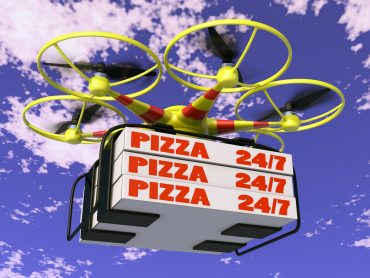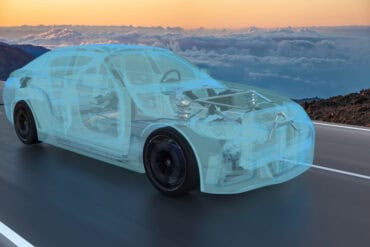
Here’s what real estate platform Trulia is seeing for the coming months in innovation not just in their sector, but across retail. Their predictions:
Last year people pivoted in the way they interact with technology. Consumers willingly changed their everyday habits to align with the demands of technology, responding positively to new harrowing capabilities that typically scare the masses away.
For instance, instead of heading to a web browser and search engine to find out how many miles away the moon was, people became comfortable asking a tool sitting on their kitchen counter. Businesses started embracing artificial intelligence technology to create more thoughtful and meaningful experiences for customers and consumers. Of course, there’s still a way to go to perfect chatbots, voice assistants, and other AI applications, but there’s no turning back. The merging of major brands like Amazon and Whole Foods presented opportunities for less wasted time – making your weekly shopping trip double in purpose as a way to potentially pick up your deliveries.
See also: How IoT will remake transportation in 2018
As we move through the rest of 2018, I expect that there will be fewer new technologies, and instead, the focus will be on augmenting and improving these new experiences for consumers. Among our predictions, we see that companies will further understand how consumers want to interact with their brand, and they’ll build smart ways to match those expectations through technology.
AI will continue personalizing your experience
In 2018, companies will be focused on using AI for personalization, getting better and better at knowing what you’re likely to like, or even better, likely to buy. The improved accuracy in data collection and easy access to machine learning technology that companies have been experiencing have started shifting consumer and customer expectations. They expect a highly personalized experience, and brands must give it to them.
We will see companies across industries using AI to infer and predict behavior, ultimately providing even more personalized experiences to consumers. The technology will do a better job of mimicking personal interactions, recognizing preference indicators, and reacting as appropriate. It will no longer be the responsibility of the consumer to select and establish their preferred settings – technology will learn from behavior. By reducing the effort required by customers, these companies will strengthen brand affinity and loyalty.
This technology will be offered in the form of prediction engines or recommender systems based on customers’ inferred behavior, which will see exponential growth in 2018. Creating personalized experiences and fine-tuning our recommender system were focuses for Trulia in 2017, and they will both continue to be in 2018.
Artificial Intelligence is a large umbrella concept with many different elements, including machine learning, computer vision, and deep learning. I’m not alone in believing that 2018 will be another year of AI leading headlines, and I think the most compelling improvements resulting from AI will be around this more personalized experience.
Visual search will kill text search
Visual search will become the preferred method of search, over text and voice, in industries like real estate, auto, and retail.
Thanks to the improvements in hardware and GPU speed, we no longer need to wait days for an image to process, so if you’re trying to buy a car, you can skip the tables of text listing each feature one by one. Instead, pull up a photo and hover over the areas you’re interested in to see feature descriptions.
Even with the popularity of Alexa and Google Home, voice search will still not see the growth I expect from visual search, especially in industries with transactions at their core. Real estate, auto, and retail are visual industries in which customers want to see what they’re buying. Sure, you might be able to reorder your monthly supply of laundry detergent through Alexa, but when it comes to finding a new home, suit, or sports car, you want the photos so you can envision what you’ll look like in them.
AR will benefit from other tech advancements
The potential needs and applications for AR are increasing every day. The industries most likely to be the first to implement more AR experiences are retail and real estate. In both of these industries, people are used to imagining something that’s not there, whether it’s a dress you’re not sure will fit or the addition of a new piece of furniture. Scenarios that require a creative mind will rely on AR technology to fill the holes for consumers.
AR will serve as a sales tool in these examples because it offers a more realistic simulation than what many of our imaginations are capable of. Online portals and realtors will be able to sell the future to customers, and potentially reduce the rate of customer dissatisfaction, since they’re able to get a sneak peek of the item or product they’re buying.
Major players are investing in the promise of AR with many of them embedding chips in devices to create faster data connections to improve the AR experiences for consumers.
Just as we saw a major shift in 2017 for frontier technology, we will see the next step take hold this year, as companies work to improve and streamline tech experiences for consumers. The old adage of “the customer is always right” seems to hold true – businesses watch how people use their services, and rise to meet the challenges raised to stay competitive.





























